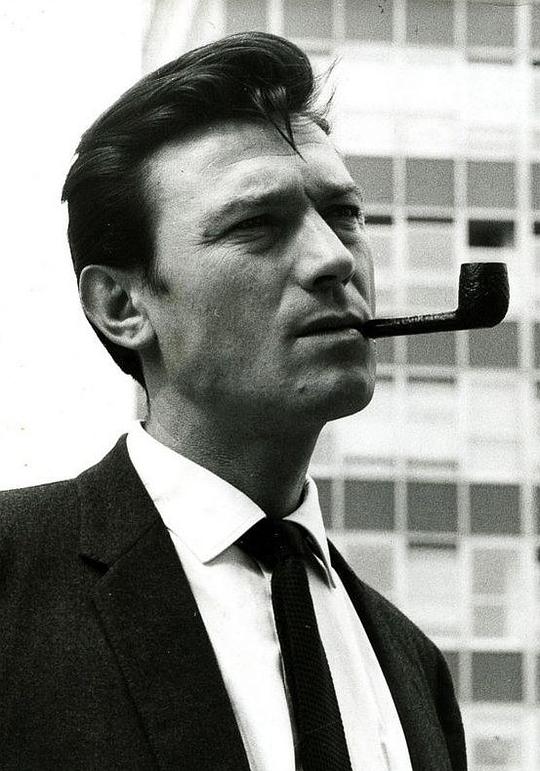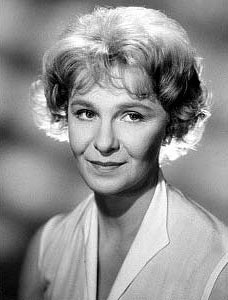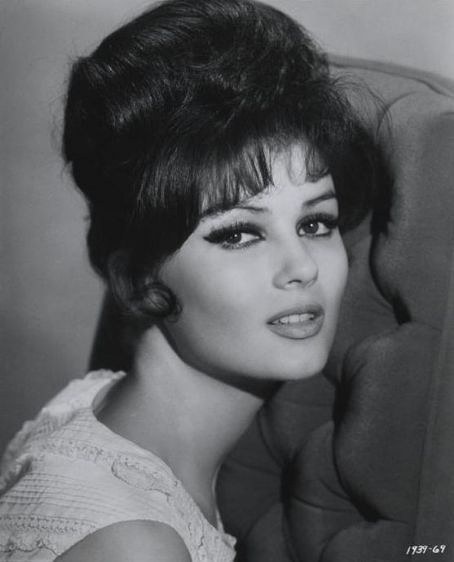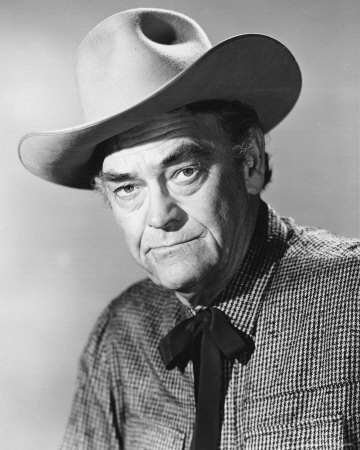夏日烟云 Summer and Smoke(1961)
简介:
- 阿尔玛(杰拉丹·佩姬 Geraldine Page 饰)和约翰(劳伦斯·哈维 Laurence Harvey 饰)是青梅竹马的玩伴兼邻居,从很小的时候起,阿尔玛就深深的爱上了魅力非凡的约翰。无奈,约翰是一个花花公子,身边总是不断的更换着不同的伴侣,阿尔玛深知自己和他并不是一个世界的人。
演员:
影评:
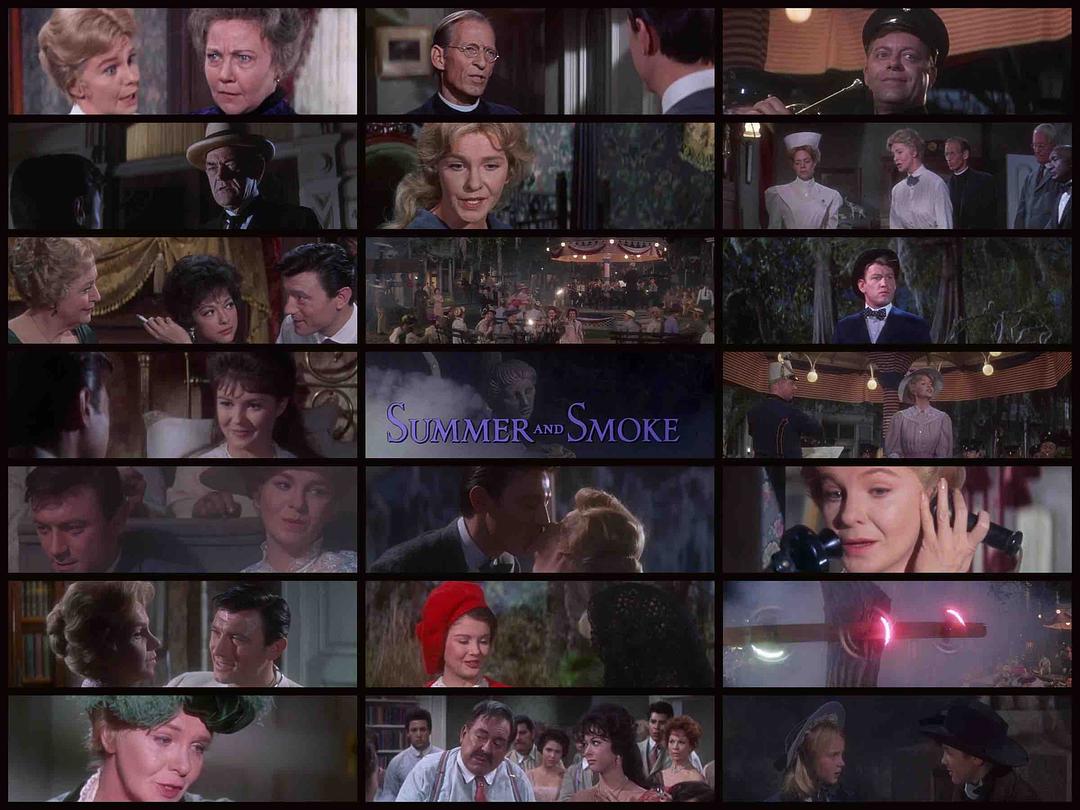
A sultry, clammy celluloid adaptation of Tennessee Williams’ searing gender study SUMMER AND SMOKE directed by the UK thespian-turned-stage-regisseur Peter Glenville (his third feature film).Living in Glorious Hill, Mississippi in the early 20th century, Alma Winemiller (Page, parlays her stage success into cinema), a minister’s daughter, has been carrying a torch for her neighbor John Buchanan, Jr. (Harvey) ever since she was a little girl.
Weaned on a puritanical upbringing and encumbered with a kleptomaniac mother (Merkel, facing off grandly with a full-throttle Page, and is given a career-commemorating Oscar nomination) who is off her trolleys, a maiden Alma dreads that her youth will soon get shrouded into spinsterhood. One summer, when Johnny, now a medical practitioner like his father (McIntire), the prodigal son returns to Glorious Hill, Alma’s feelings for him are rekindled, but for a gadabout Johnny, Alma’s modesty cannot rival the exotic allure of Rosa Zacharias (Moreno, oozing strangely touching empathy in her feral presence), a wild Mexican girl who revels in their carnal knowledge, and affectionately admits that he smells really good, their liaison is basically corporeal but there is candor in it.
Be that as it may, Johnny is not at all chaste towards Alma, but makes a blunder when he tries to liberate her torrid soul (Alma means“soul” in Spanish) from her prissy manacles. A consequential tragedy further drifts them away (from our vintage point, Alma is quite blameless for its unexpected but vacuous fallout) but subliminally the disparity between them starts to squarely influence their respective perspectives about themselves (although in Johnny’s case, his metamorphosis is obviously more associated with his personal loss).
Therefore, emboldened by a trading-places scenario, the drama takes a heart-rending turn in the “right people, but wrong time” finale, which bestows Ms. Page a crowning showpiece of self-liberation mingled with a smorgasbord of emotions, her rejoicing aspiration, segueing to a heart-opening tête-à-tête, thenfollowing by revealing dismay and heartbreaking, the karma is holy stiltedly designed, but Ms. Page’s flair holds its own when her southern mannerism is sublimated into something like a tenable institution, a flesh-and-blood being. Laurence Harvey, on the other hand, beautifully plays out his raffishness and ekes out sensitive gesticulations incessantly, but most of the time, he keeps Johnny’s morality ambiguous.
In company with Elmer Bernstein’s bespoke score measuring up protagonists’ internal flickers, SUMMER AND SMOKE is humble in its material construction but a deep-fish psychological balancing art between two polarized species inhabiting in the same biome, a bone-fide heartstring-tugger among Mr. Williams’ canon.
referential points: Daniel Mann’s THE ROSE TATTOO (1955, 7.3/10), John Huston's THE NIGJT OF THE IGUANA (1964, 7.7/10), Joseph L. Mankiewicz’s SUDDENLY, LAST SUMMER (1959, 7.4/10).

- 很是喜欢阿尔玛这个女性角色,一开始坚信爱情是属于两个人的灵魂合二为一,以及人体是由玫瑰花瓣组成的,而非肉体。因此在影片的前半段她总是显得十分畏惧爱情,她的行为举止都是或多或少别扭做作。这也是她从小受的牧师家庭教育有关。 到后段当她决定抛弃这些枷锁,投身爱的怀抱时,约翰却已经婉言拒绝了她(感觉好具讽刺),但阿尔玛对约翰最终还是释放了自己,但是否能够再次接受别人的爱呢,最后的挥手道别天使像我觉得很好地回答了这个问题,虽然她还是有些不安与紧张,但她却已不再是以前的那个阿尔玛了。
杰拉尔佩吉在本片的表演还是相当不错的,毕竟人物角色上的矛盾还是挺难处理的。一些小细节和动作处理的不错,但有些地方的表演可能略微偏向于舞台剧的风格。


